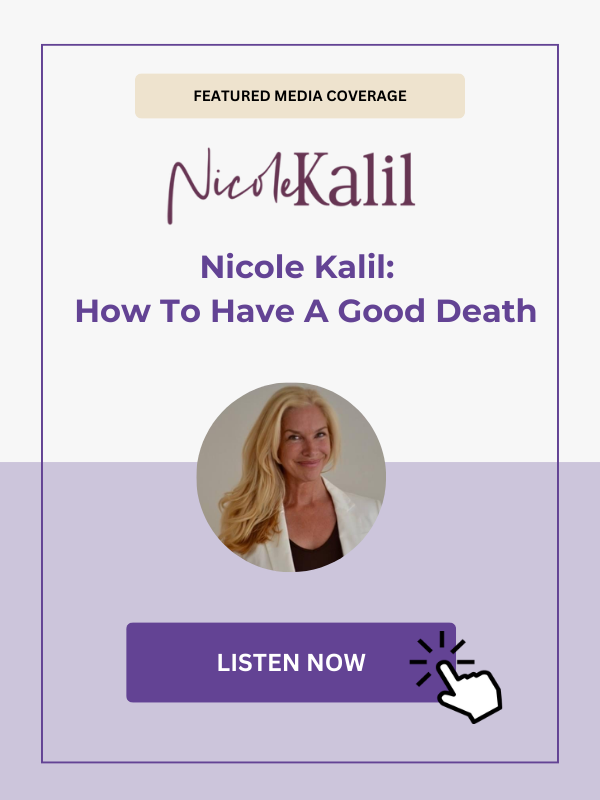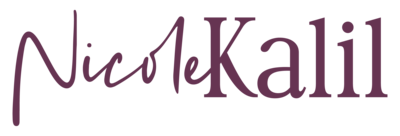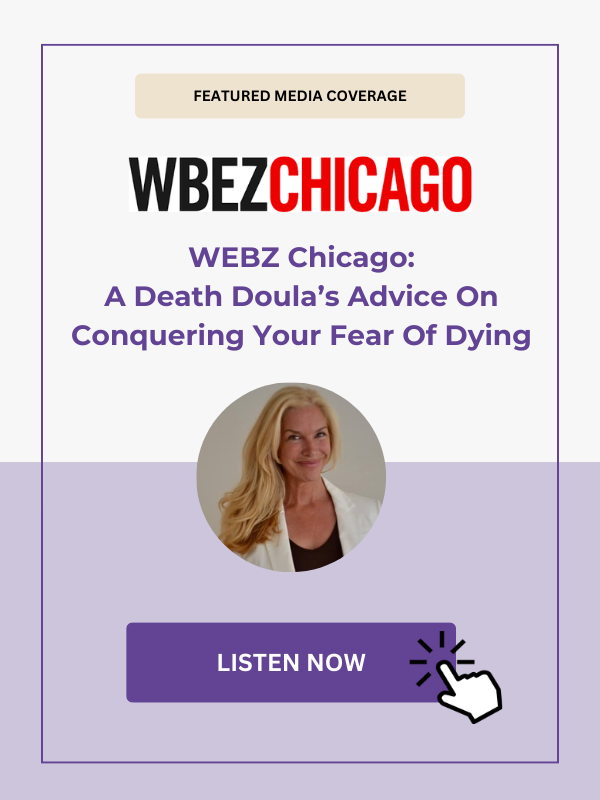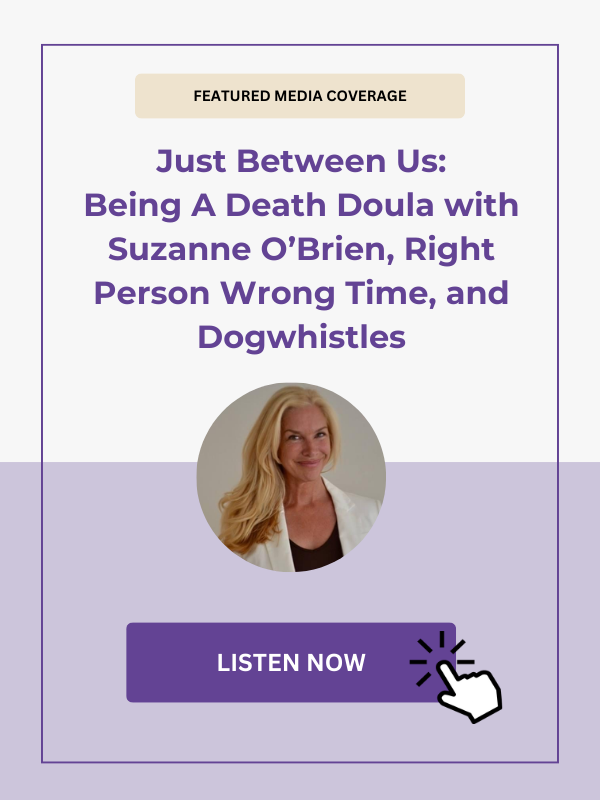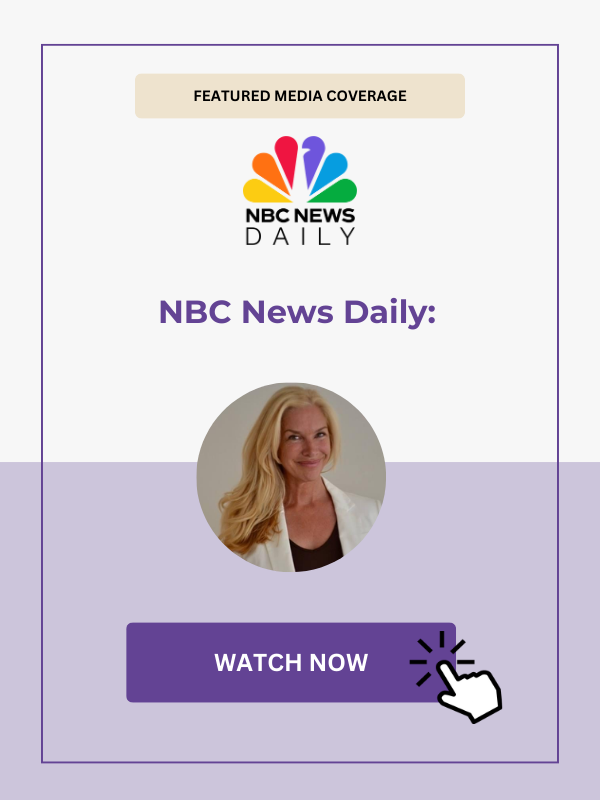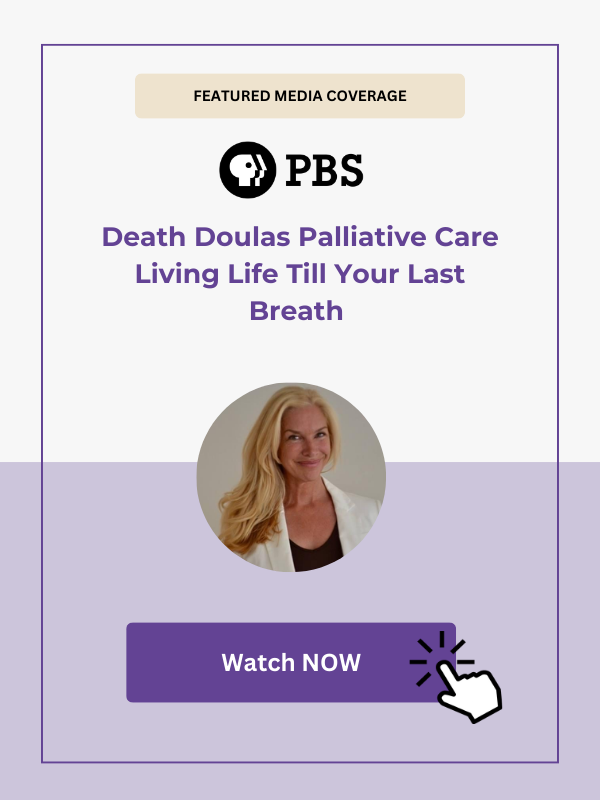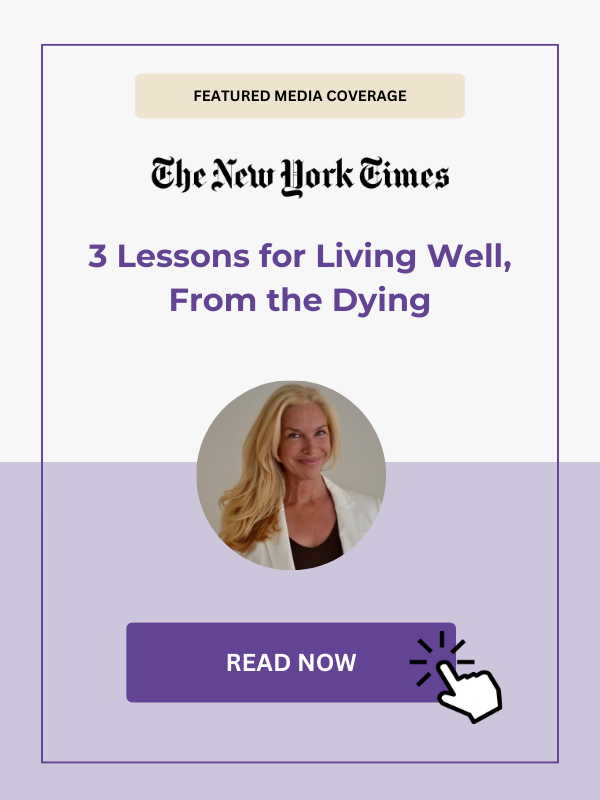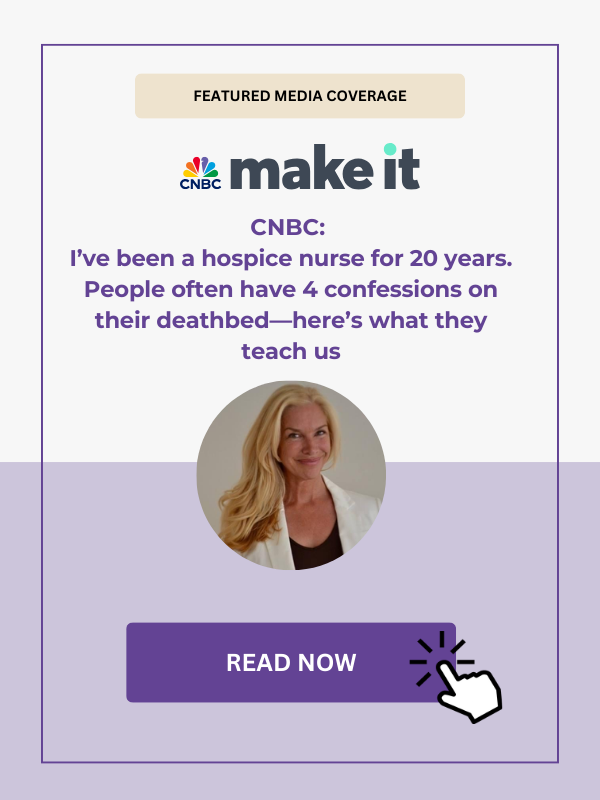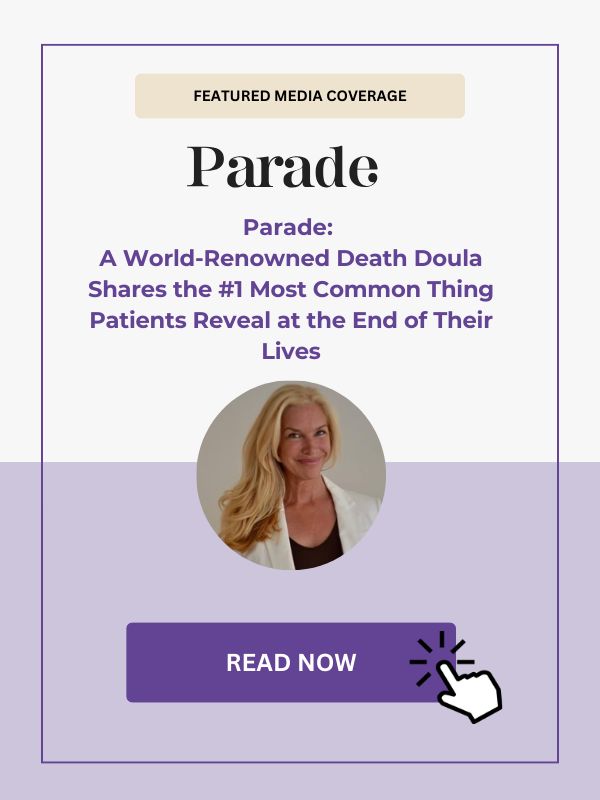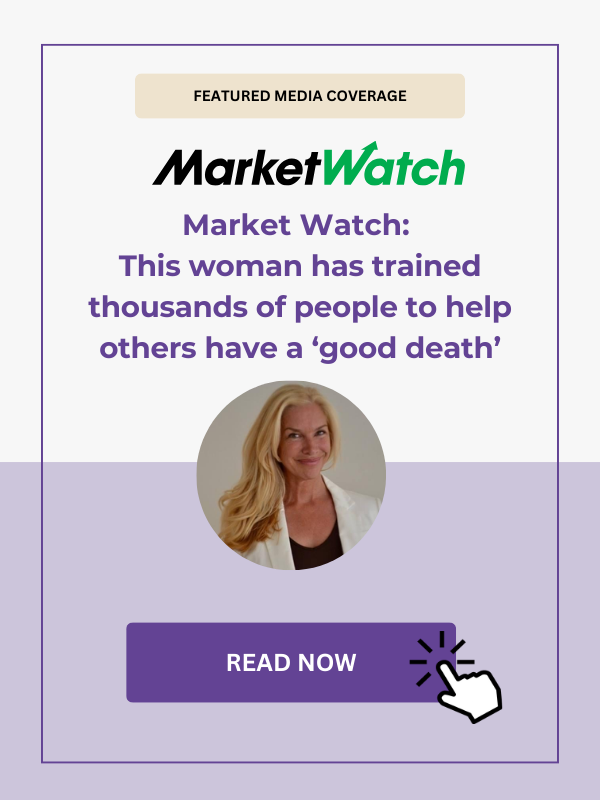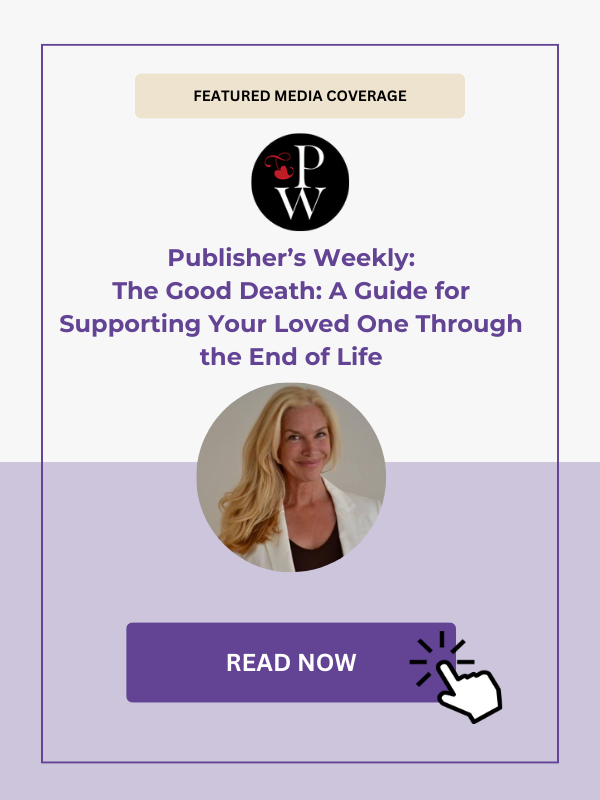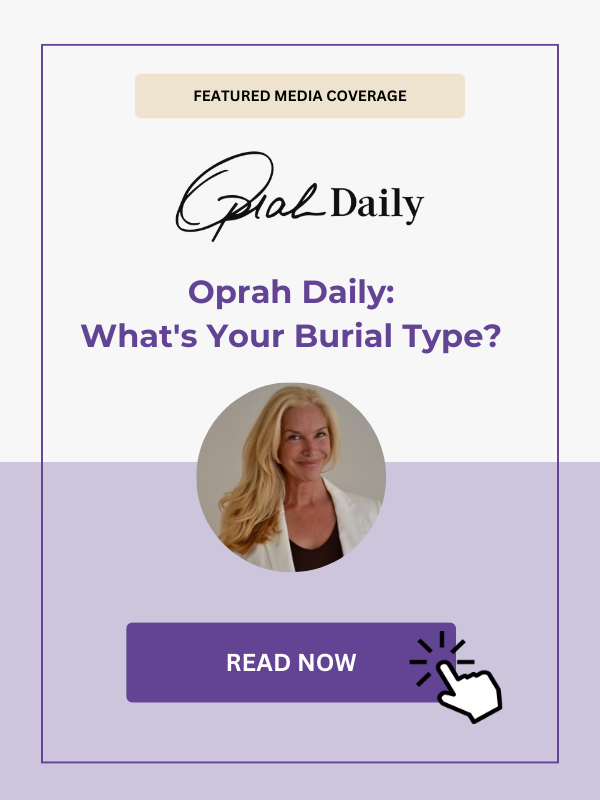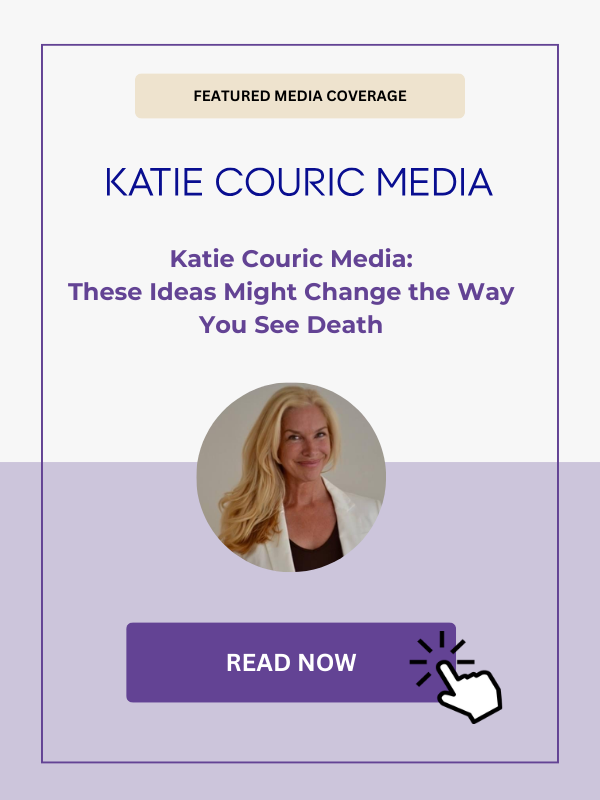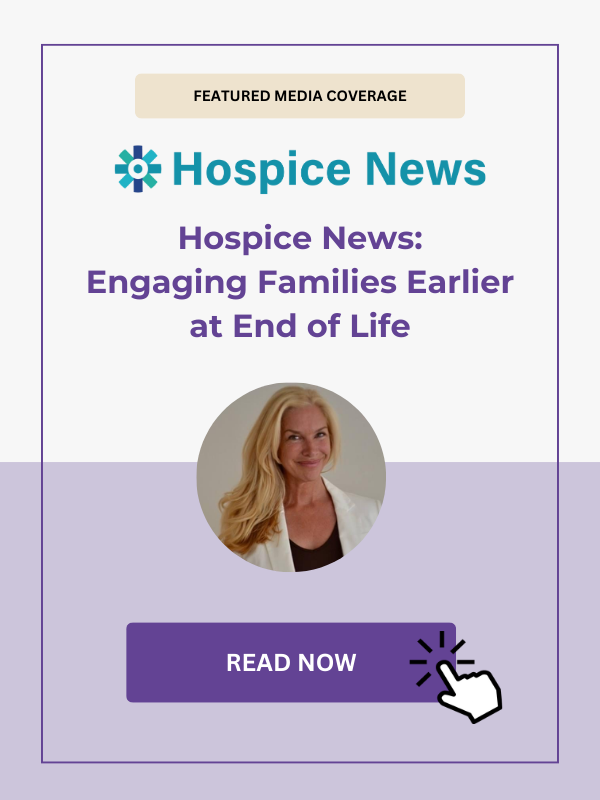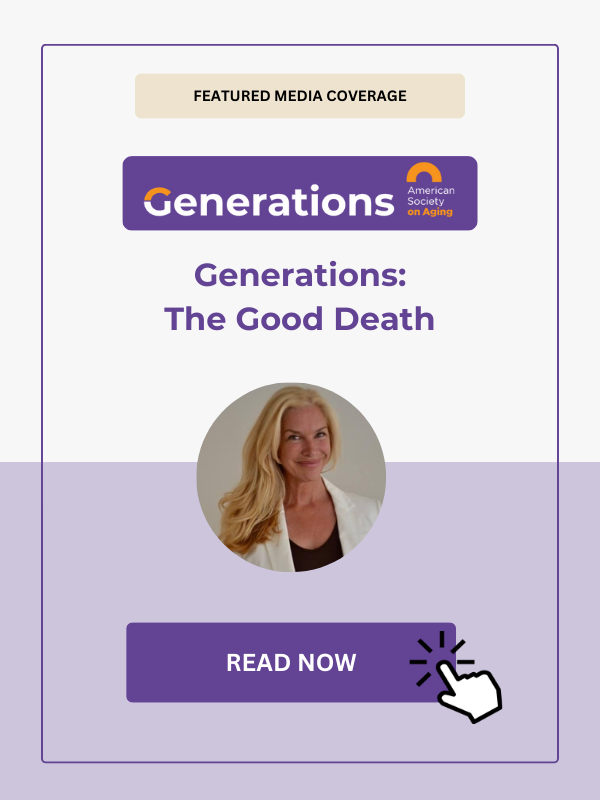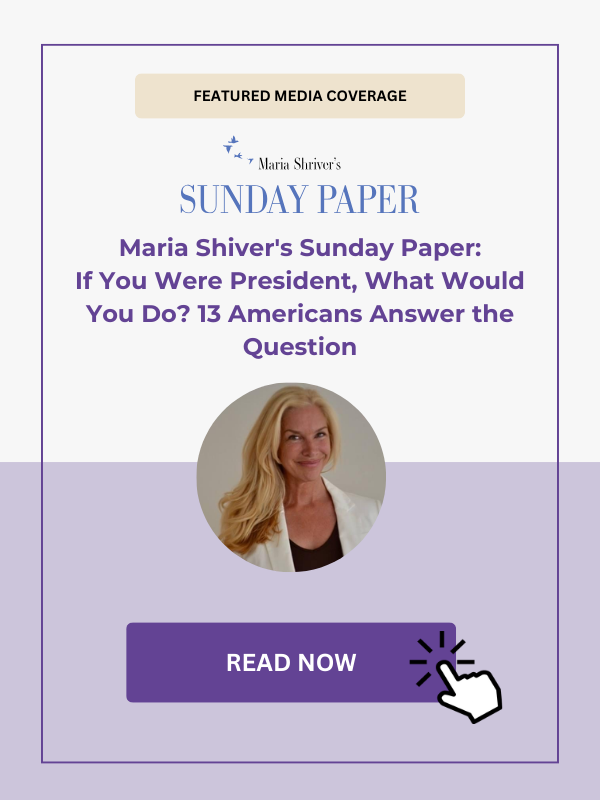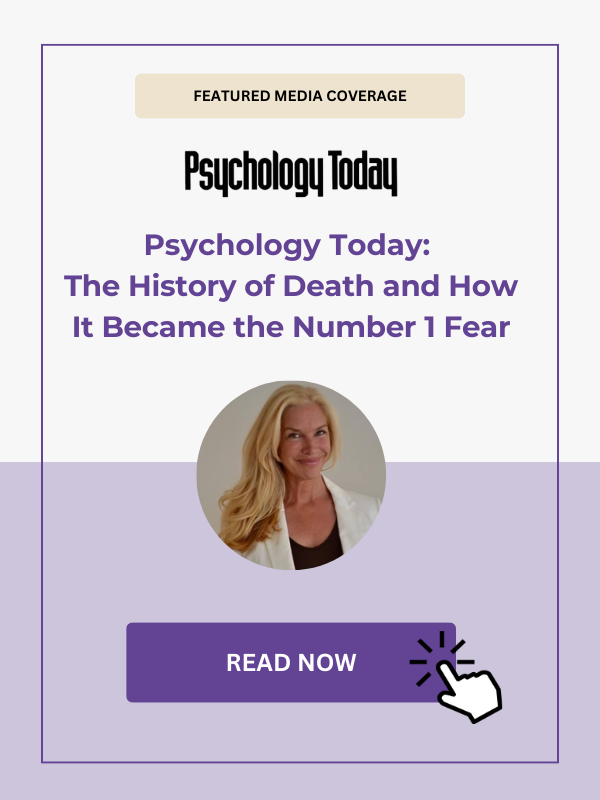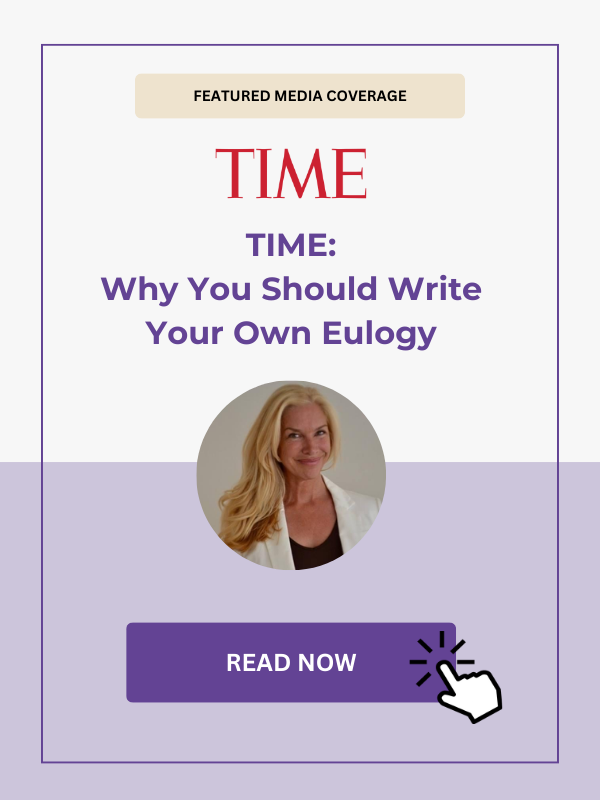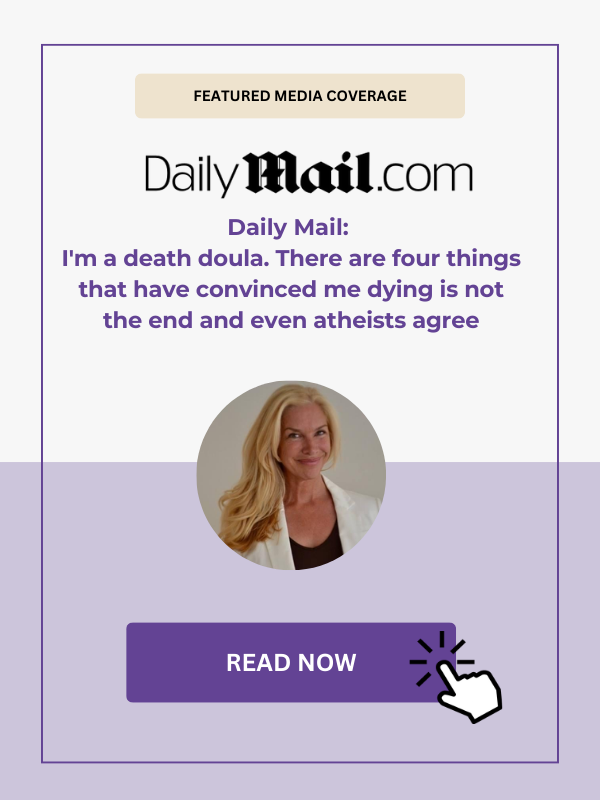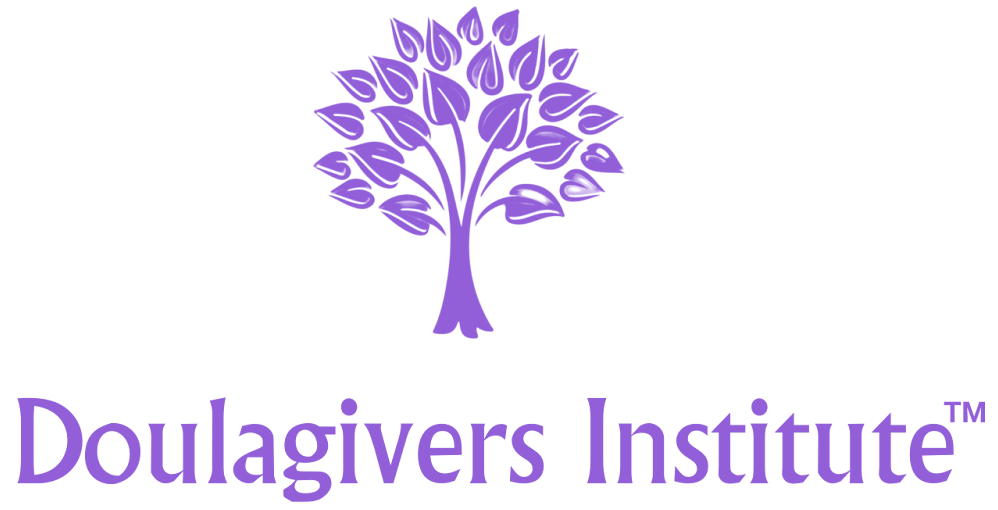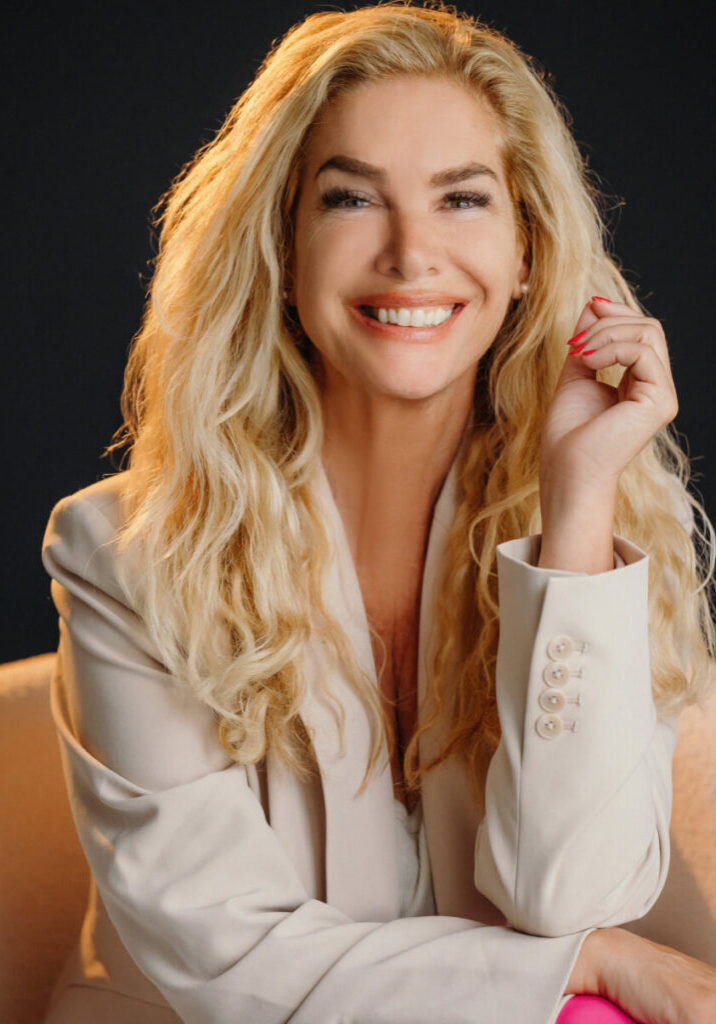
Suzanne O'Brien RN
International Doulagivers Institute, founded by Suzanne O’Brien RN, providing the highest level of education and certification for the End of Life Doula. Our Doulagiver training is akin to the birth doula model: both help people transition to and from this world. Facilitating this process requires education, training and compassion. Our certified End of Life Doulas are a global community working as an adjunct to Hospice and providing care and guidance for patients and families at the end of life.
And you can find everything you need at Doulagivers, an internationally recognized leader in end of life training programs and care.
Featured Broadcast & Podcast Coverage

WEBZ Chicago - A Death Doula’s Advice On Conquering Your Fear Of Dying
Until about 100 years ago, death was revered as a natural and sacred part of life. The rise of the funeral industry at the turn of the century, coupled with modern society’s longevity obsession, made death foreign and scary. Death doula and former hospice nurse Suzanne O’Brien has been at the bedside of thousands of dying patients across the world. She’s on a mission to remind us that death is not a medical experience, rather a human one.
Just Between Us - Being A Death Doula with Suzanne O’Brien, Right Person Wrong Time, and Dogwhistles
Everyone has hand problems. Then, a listener writes in wondering about a potential situationship who insists he’s too broken to date. Next, former hospice nurse and death doula Suzanne O’Brien joins for an incredible conversation about “a good death.” And finally, Melisa and Gabe explain dog whistles and their true meanings.
Featured Articles

New York Times - 3 Lessons for Living Well, From the Dying
What if you knew that you were at the end of your life? Would you have done anything differently? A friend of mine volunteers at a hospice, and she hears one regret over and over from patients: letting relationships wither. They wish that they had made more plans with good friends, or they thought about getting back in touch with an old buddy, and talked themselves out of it.
CNBC - I’ve been a hospice nurse for 20 years. People often have 4 confessions on their deathbed—here’s what they teach us
As a hospice nurse with more than 20 years of experience, I’ve sat with many patients at the end of their lives. But I’ve found that for most people, death isn’t the biggest fear.
Parade - A World-Renowned Death Doula Shares the #1 Most Common Thing Patients Reveal at the End of Their Lives
Whether you're approaching a mature age yourself, or you're caring for aging loved ones, it's normal to start thinking about what conversations you may need to have with family and friends, as well as what choices need to be made in the near future.

Publisher's Weekly - The Good Death: A Guide for Supporting Your Loved One Through the End of Life
O’Brien draws on her work as a hospice nurse and death doula in her compassionate debut guide to end-of-life care. Exploring modern discomfort with death, she argues that scientific advances have “medicalized” dying, eroding its humanity as patients are funneled through a health system that “keeps people breathing at all costs” without accounting for their quality of life or discussing what to expect at the end.
Katie Couric Media - These Ideas Might Change the Way You See Death
As I picked up the phone, the soft, familiar voice on the other end said, “I need you to come over to my apartment this week. Can you come Tuesday afternoon at 3:00?” It was my dear friend, Shatzi Weisberger. Ninety years old at the time and less than five feet tall, Shatzi was still a force to be reckoned with.

Generations - The Good Death
With more than 20 years of experience as a hospice nurse, palliative care professional, and founder of the Doulagivers Institute, Suzanne B. O’Brien, RN has trained more than 350,000 people in what can be done to help the dying person, caregiver and other loved ones so they may move through each stage with as much comfort and ease as possible. In The Good Death, O’Brien provides a comprehensive plan and the empowering knowledge to make a beautiful, sacred and profound experience for everyone involved.
Maria Shiver's Sunday Paper - If You Were President, What Would You Do? 13 Americans Answer the Question
We pondered this as Presidents' Day approached this year. To honor this national holiday, we wanted to encourage conversation away from divisiveness and partisanship and toward connection and hopeful dialogue. So, we asked people: If you were President, what would you do?

Psychology Today - The History of Death and How It Became the Number 1 Fear
For centuries, death was viewed as a sacred and communal experience. It was an integral part of life, approached with rituals that provided both comfort and guidance for the dying and their loved ones. Families cared for their loved ones at home, and communities came together in support. Death was a rite of passage, filled with reverence and meaning.

TIME - Why You Should Write Your Own Eulogy
Have you ever lost a loved one who left important words unsaid? Did you wonder if they really loved you, or did you have an argument with them right before they died? As a hospice nurse and the founder of Doulagivers Institute, and as someone who has been at the bedside of over 1,000 dying patients, I know how important it is to say everything you need to say at the end of life. That’s why I recommend that everyone, young and old, sick or healthy, write their own eulogy.
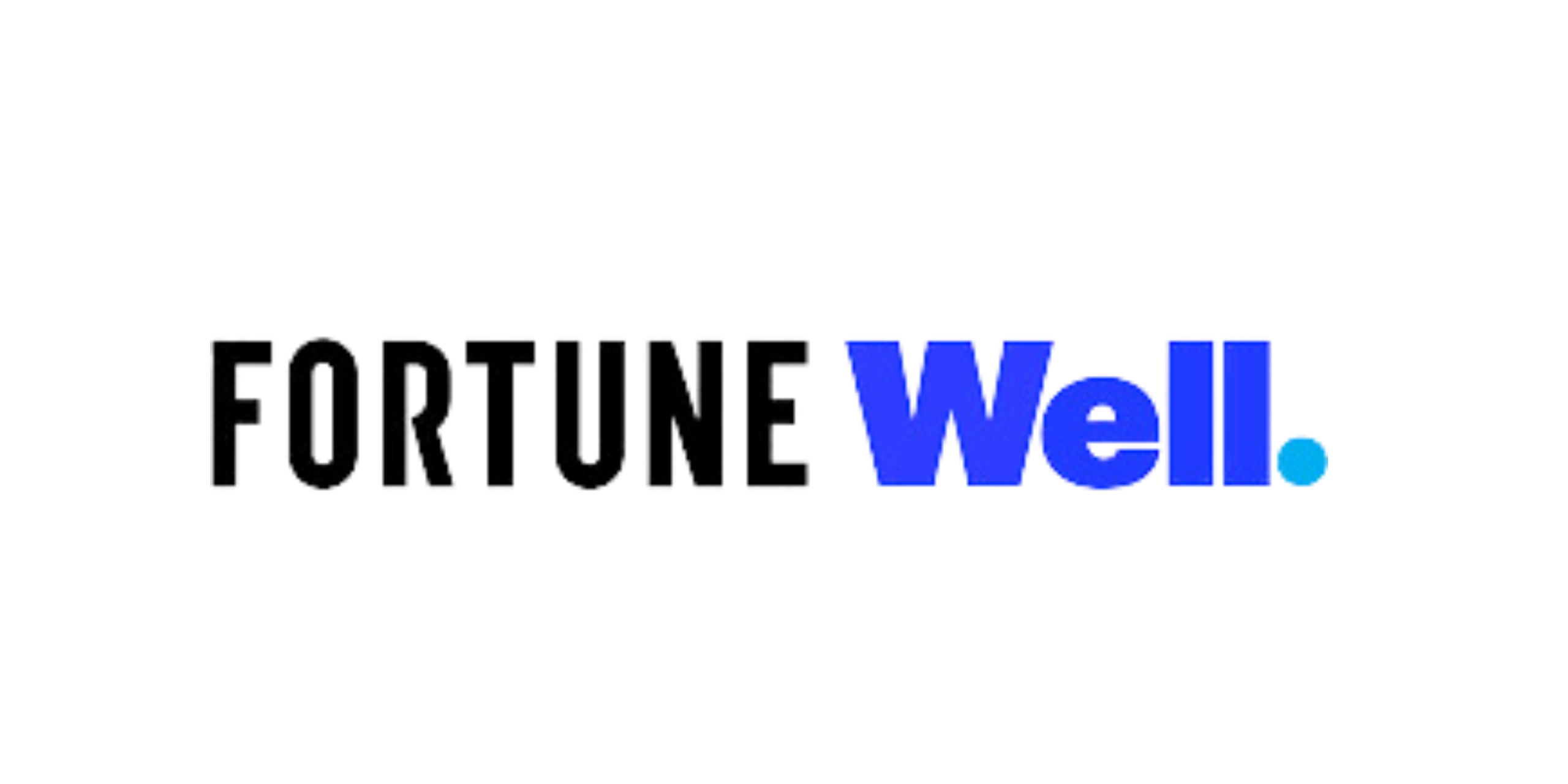
FORTUNE Well - These are the top 3 regrets at the end of life, according to a death doula at the bedside of over 1,000 past patients
She has been at the bedside of over 1,000 people globally in their last moments of life—from her home in the U.S. to Thailand and Zimbabwe. O’Brien, a registered nurse, had an impulse to move into hospice care over two decades ago and has since worked as an oncology nurse and a death doula, supporting those at the end of life emotionally and physically by helping them work through their own grief.

New York Times -The Death Positive Movement Comes to Life:
End-of-life doulas support people emotionally, physically, spiritually and practically: sitting vigil, giving hand massages, making snacks. People are showing up to be Doulas from all walks of life and “filling the gap” of presence in hospice care.

Time Magazine - Death Doulas Used to be Rare. The Covid-19 Pandemic Changed That.
Suzanne O’Brien, founder of Doulagivers, notes that the COVID-19 pandemic made death impossible to ignore and sparked a dramatic increase in people training as end-of-life doulas. According to O’Brien, her organization trained more than 1,000 doulas in 2021, up from roughly 380 before the pandemic.

Oprah Magazine

CBS News End of Life Doulas Become Growing trend to Ease The Final Passing- Stephanie Stalls
Suzanne O’Brien, an oncology nurse, has shifted her focus to training end-of-life doulas, individuals who are not medically licensed but learn to provide comfort and support during a person’s final days. She believes dying can be a peaceful, dignified experience, and her training courses equip people—often family members—to assist in ensuring a tranquil end-of-life transition.

Hospice News- Death Doulas Engage with Hospice to Support Patients
Suzanne O’Brien stresses that end-of-life doulas help patients understand and exercise their choices, guiding them through emotional, spiritual, and logistical concerns in the dying process. By educating families, addressing anxieties, and encouraging earlier hospice enrollment, O’Brien believes doulas can improve the quality and dignity of end-of-life experiences.

Hospice News- Death Doulas Could Bridge Gaps to Hospice
Suzanne O’Brien underscores that misunderstandings of hospice and fragmentation in the medical system can hinder patients from accessing the best possible end-of-life care. By partnering with death doulas, hospices can help ensure patients and families receive more comprehensive support, ultimately resulting in a more positive, holistic experience in the final stage of life.

Hospice News- Pandemic Pushes Death Doula Awareness. Hospices Seek to Strengthen Ties
Suzanne O’Brien points out that many people are unclear about hospice’s role and that the fragmented medical system often prevents a positive end-of-life experience. She urges hospices and death doulas to work together to ensure that the single opportunity for a peaceful dying process is not lost due to misinformation or lack of support.

New York Post - End of Life Doulas Bring Guidance and Strength at a Time of Need
Suzanne O’Brien’s Doulagivers training program teaches individuals to offer non-medical, holistic end-of-life support, including emotional guidance and practical assistance with day-to-day tasks. Inspired by the compassion she observed in Zimbabwe, O’Brien emphasizes the “power of presence” as a vital aspect of caring for the dying, filling a gap left by the traditional health care system and encouraging the creation of meaningful legacies and closure.
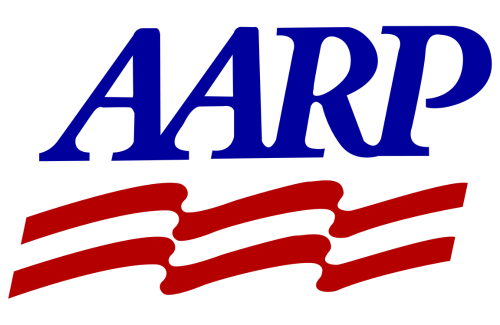
AARP: New Report: These Are the Most Livable Cities in the U.S. for Seniors
O’Brien identifies isolation, nutrition, and safety as critical factors affecting older adults when deciding where to live. She also notes that Great Neck Plaza’s well-run, senior-focused bus system offers convenient and affordable transportation, aiding in connectivity and fostering a supportive environment.

